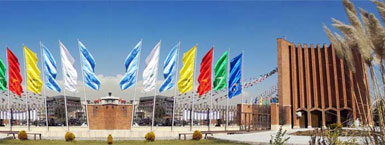Courses
.:: Ph.D::.Marine BiologyIntroductionThe Ph.D. course in Marine Biology-Marine Animal is the highest academic level in this field that leads to the awarding of a Ph.D. degree and includes a coordinated set of educational and research activities. The purpose of this course is to train specialized, knowledgeable and creative human resources who have the necessary knowledge and experience in conducting educational and research work in various fields of marine animal science. This course has two stages. In the educational stage, 22 unites (including 12 compulsory and 8 optional units) and two one-unit seminars will be presented. In the second stage, after completing the courses, the students will face the comprehensive exam and if they get a passing grade, they will enter the research stage and complete the doctoral. Job skillsGraduates of the Ph.D. course in Marine Biology-Marine Animal Orientation can work in higher education institutions, research centers, and executive bodies for education, research, planning, and cooperation in large-scale projects related to conservation, management, and exploitation of marine animals. .:: MS.c.::.Marine BiotechnologyIntroductionThe master's course of Marine Biotechnology deals with a set of sciences related to biology, technology and marine science. Among the goals of this course, we can mention the use of huge marine biological resources, such as the use of medicinal, genetic and protein resources, as well as the control of marine pollution. This course is held in 32 units (26 course units, 6 thesis units). Job skillsAccording to the knowledge acquired in the course, graduates of the Master's Degree in Marine Biotechnology can work in related educational and research institutions as well as job opportunities related to the marine biotechnology products and laboratories. Marine BiologyIntroductionThe master's course in the field of Marine Biology-Marine Animals deals with a set of sciences related to biology, biodiversity, classification, genetics and ecology of marine animals. Among the goals of this course, we can mention knowledge, management and conservation for the sustainable exploitation of sea animals. This course is held in 32 units (26 lecture units and 6 thesis units). Job skillsAccording to the knowledge acquired in the course, graduates of the master's degree in Marine Biology-Marine Animals can employ in related educational and research institutions as well as job opportunities related to the monitoring, management, conservation and exploitation of marine animals. |




